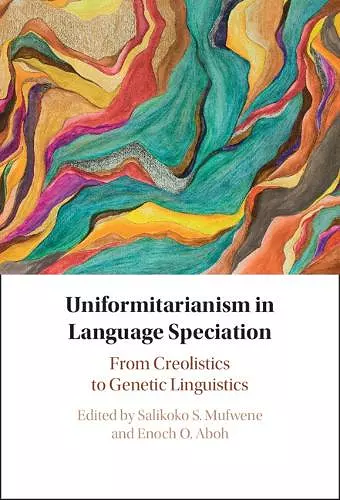Uniformitarianism in Language Speciation
From Creolistics to Genetic Linguistics
Salikoko S Mufwene editor Enoch O Aboh editor
Format:Hardback
Publisher:Cambridge University Press
Published:18th Dec '25
£130.00
Supplier delay - available to order, but may take longer than usual.

With contributions from an international team, this book sheds new light on Uniformitarianism in the evolution of modern languages.
With contributions from a global team, this book sheds light on Uniformitarianism in the evolution of modern languages, showing that creoles didn't emerge exceptionally. It enables researchers on other languages to reassess their traditional approaches, factoring in migrations and emergent population structures under specific contact conditions.Uniformitarianism is the widely held assumption that, in the case of languages, structural and other changes in the past must have been triggered and constrained by the same ecological factors as changes in the present. This volume, led by two of the most eminent scholars in language contact, brings together an international team of authors to shed new light on Uniformitarianism in historical linguistics. Applying the Uniformitarian Principle to creoles and pidgins, as well as other languages, the chapters show that, contrary to the received doctrine, the former group of languages did not emerge in an exceptional way. Covering a typologically and geographically broad range of languages, and focusing on different contact ecologies in Africa, Latin America, and the Caribbean, the book also dispels common misconceptions about what Uniformitarianism is. It shows how similar processes in different ecosystems result in different linguistic patterns, which don't require exceptional linguistic explanations in terms of creolization, pidginization, simplification, or incomplete acquisition.
ISBN: 9781009628969
Dimensions: unknown
Weight: 938g
450 pages